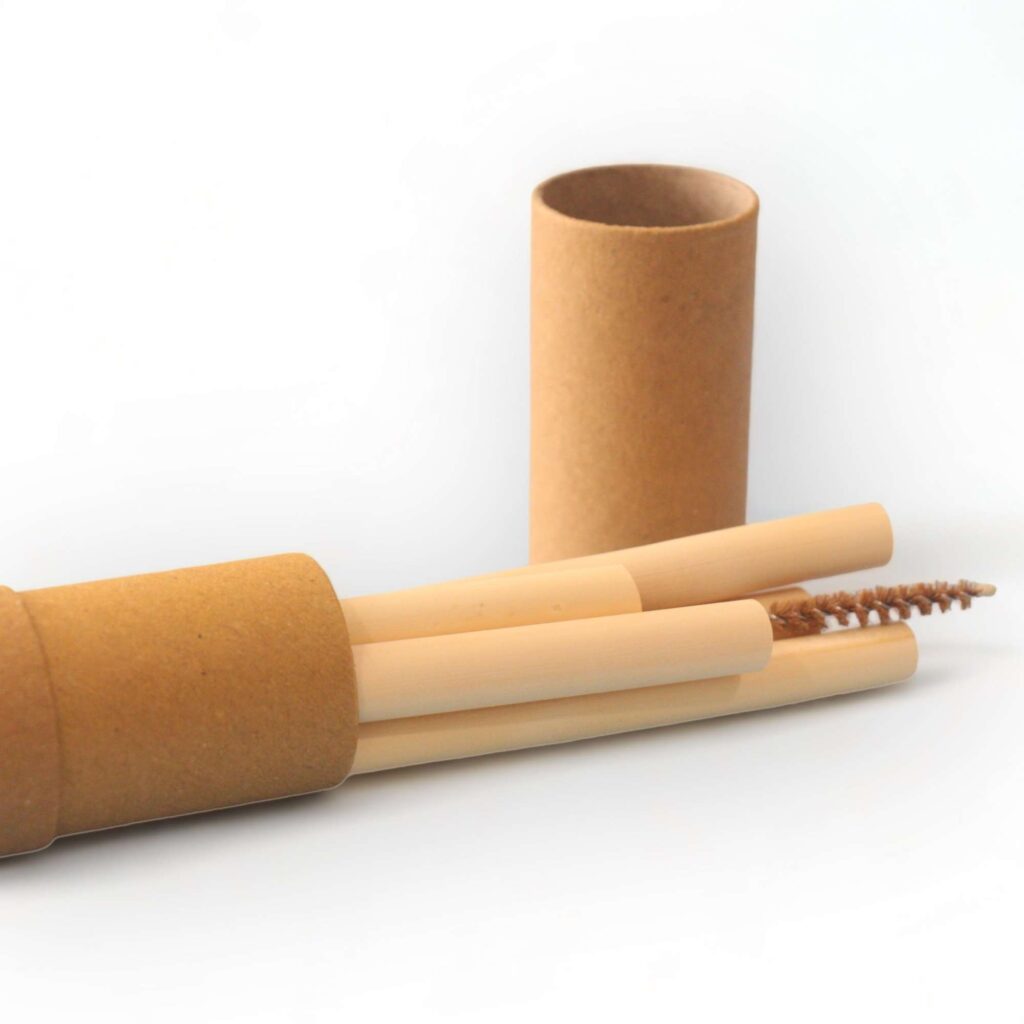
A newly wed Krishnan Subramanian and his wife, Gowri, had just relocated from a small town near Madurai to Bangalore. “I had just started with Amazon and my wife was with IBM,” Krishnan recalls. “It wasn’t as though we had started seeking to be environmentally friendly then, but we could notice quite a few aspects around us—why are the people burning so much around us, how do we know the water we drink is safe, and most of all, why is it getting hotter every year.”

This was circa 2013 and most states in India were yet to begin banning single use plastic bags. The couple drew upon the ubiquitous yellow cloth bag’s strength—made of fabric, useful for many tasks, and a fairly sturdy product—to begin Yellow Bag. “We weren’t even thinking of replacing plastic bags, we just wanted people to consider cloth bags as an alternative, and adopt a plastic-free lifestyle,” says Krishnan, who used to dress up as a giant made of waste plastics and hang around fairs and events to promote cloth bag alternatives. “Many media covered our story, and slowly the idea caught on.”
Slowly, people began sending in enquiries, and Krishnan was suddenly finding himself tasked with fulfilling interest. “The traditional yellow bags are made locally—by a housewife or a group of women who would get an order for a wedding or a function; and there was really no formal organization around this.” The Madurai native lost no time in putting down some basics in meeting the demand through an organization that provided livelihood to the women in a more formal structure. Gowri’s mother herself was one such provider involved in the business and the couple roped her in to grow the team.

The initial communication hiccups were resolved quickly by in-person intervention, and they came up with yet another hurdle—most of these women were used to sporadic orders and fickle income, but now they looked up to Krishnan and Gowri for steady livelihood. “It was a catch the tiger by its tail,” laughs Krishnan in recollection. “We started with just 3 women, but in less than a quarter, we had a dozen employees to payroll.” Gowri moved to Madurai to head operations and involved herself fully in Yellow Bag. “As Madurai natives, we were only too happy to move back,” she says, “and Krishnan soon followed me.” They were also young parents to a child, and the motive to move back was high.
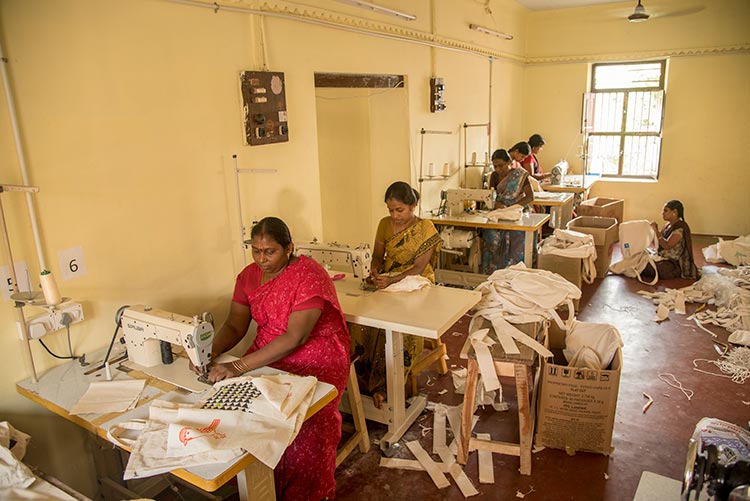
Yellow Bag began working with community clusters, seeking out women who had a sewing machine at home and could be gainfully employed. “You never know what surprises can hit you when you are a small business,” Krishnan recollects. The women were happy to be employed, but priorities changed—the tomato had to be harvested, a cow would have just calved and had to be taken care of, and so on. “To be fair, their personal priorities were real and time-bound, but I too had a business to run,” he laughs.
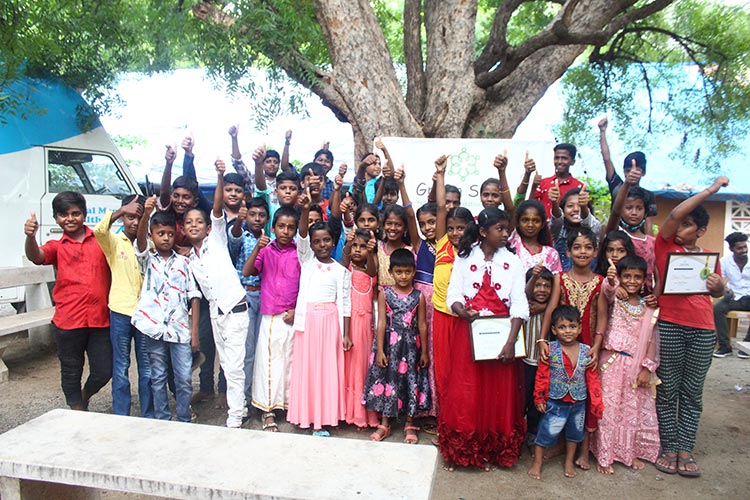
The couple set up a full-fledged production unit in a small low-economy community called Madichiyam, near the banks of the river Vagai. Today, the plant employs around 30+ women who run the full operations—from cutting to screen printing to stitching and delivery of the yellow bags. Only the fabric is sourced from outside.
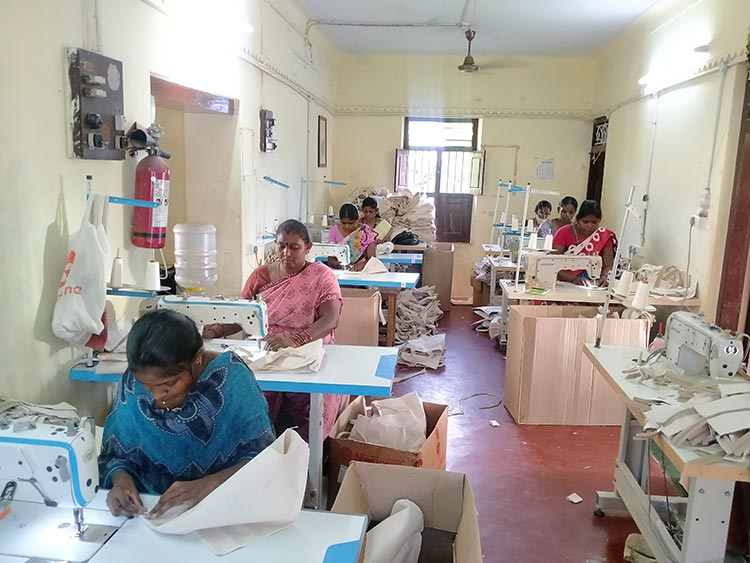
While working closely with the team (which is now fully independent and self-sufficient), Krishnan and Gowri noticed that the children of these women were receiving little or no schooling. “When we looked at how my children were being educated, and how these children were dealt with mediocre tutoring, we decided to bridge the gap.” Yellow Bag Foundation came into reality just before Covid 19, and the couple set up a training center in the bag production facility itself.

During the pandemic, the foundation experimented with a skills-training program, inviting experts from outside, experimenting with curriculum, and finding collaborative interest with the local schools. Today, the foundation runs a full after-school center where it provides internet connectivity, extra-curricular training, and child care.
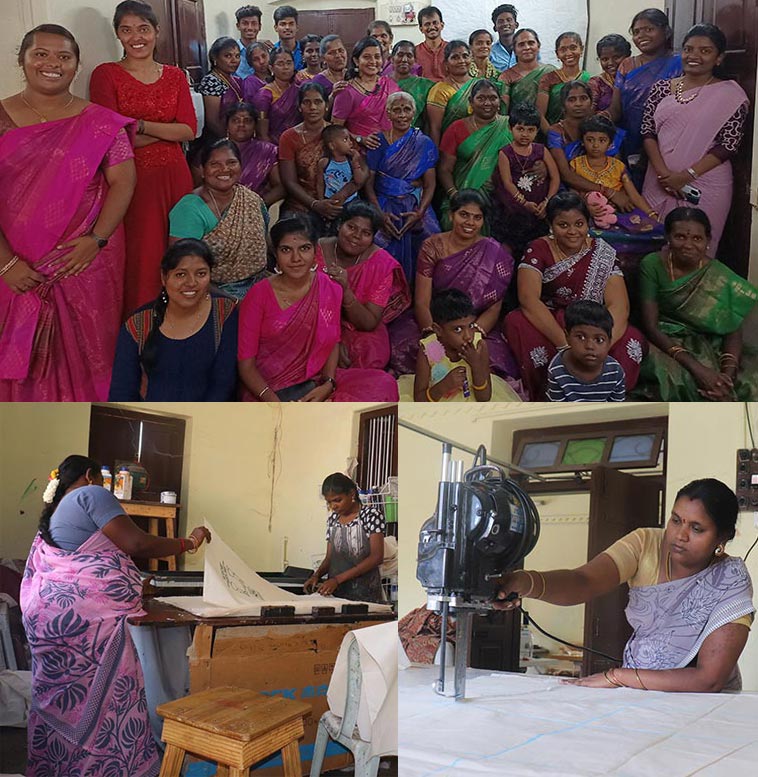
Today, Yellow Bag serves a diverse range of commercial needs—from events to corporate gifting to collectible, ranging from a simple INR 40 bag to a laptop bag created from recycled PET bottles that sells for about INR 1000.

The brand’s fame has led to tremendous duplication, especially in the retail check-out bag segment, at very low prices just to flood the market. “The most affected person in this dive-to-the-bottom commoditization is the tailor—the poor person doesn’t get paid the full value or at time, not at all,” recounts Krishnan. Yellow Bag focused on brands that were interested in paying for premium quality and finishes. Today, the circle of influence is fairly large—from the government to influencers who connect the couple to companies and events, and the demand is growing in a steady manner.
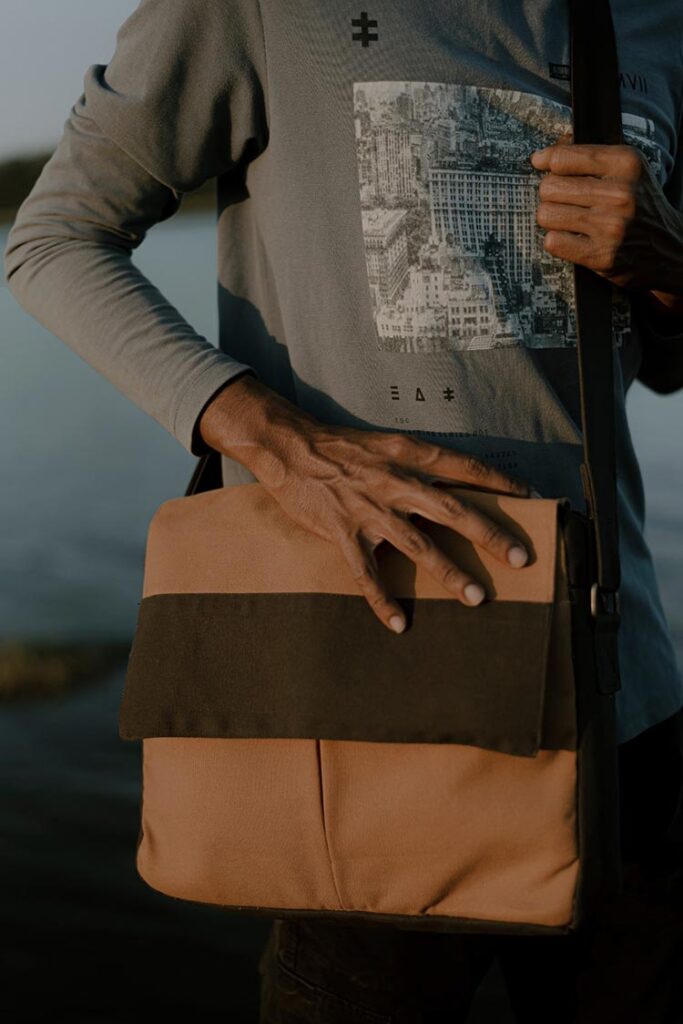
Krishnan is very careful about growth. “We are more than tripling our growth for 2024, but want to ensure our people are paid the right wages and remain committed,” He is also planning to expand the product line while also bringing in other products that are made in a “responsible” process. Not just that, the Yellow Bag couple bring a deep understanding of similar such businesses and want to help or collaborate with them. “Many such startups don’t know how to scale or have meandered away, and we want to work with them,” says Gowri. “This is an on-demand business, and we want to see how to stabilize this.”
Manjal (color yellow derived from the stain of turmeric) Pai or Yellow Bag stands as a shining example of reinvigorating a traditional bag of our historic past to make an impact into our future.





